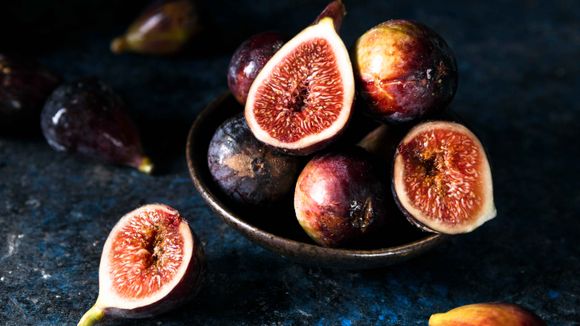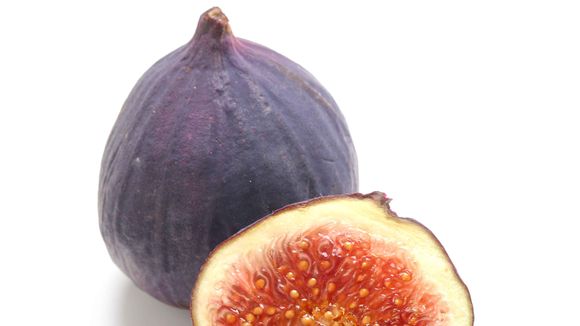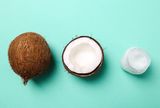Nutritional composition of figs
Fresh figs (Ficus Carica) are rich in nutrients, while having a relatively low calorie content, making them an excellent addition to the healthy diet and variety of fruits in it. [ref. 1]
A small (40 grams) fresh fig contains:
- Calories: 30
- Protein: 0 grams
- Fat: 0 grams
- Carbohydrates: 8 grams
- Fiber: 1 gram
- Honey: 3% of daily value (DV)
- Magnesium: 2% of the daily value
- Potassium: 2% of the daily value
- Riboflavin: 2% of the daily value
- Thiamine: 2% of the daily value
- Vitamin B6: 3% of the daily value
- Vitamin K: 2% of the daily value
Fresh figs contain few calories from the natural sugars in them, but the intake of a few figs is within the low-calorie snack. On the other hand, dried figs are high in sugar and rich in calories, as sugar is concentrated when the fruits dry.
Figs also contain small amounts of multiple nutrients, but are especially rich in honey and vitamin B6.
Health benefits of figs
Useful for digestion
Figs have long been used as a home remedy or alternative treatment for digestive problems such as constipation. [Ref. 2]
They contain fiber, which can help promote digestion health, helping to separate feces, prevent constipation and serve as a prebiotic (a food source for beneficial intestinal bacteria). [ref. 3]
Figs for cardiovascular health
Figs can improve blood pressure and fat levels in the blood, which can help improve cardiovascular health and reduce the risk of heart disease.
One study found that fig extract reduces blood pressure in rats with normal blood pressure, as well as in those with elevated levels. [ref. 4] Animal studies have also shown improvements in total cholesterol levels, HDL (good) cholesterol, and triglyceride levels when taking fig leaf extract as a dietary supplement.
Potential anticancer properties of figs
Very promising in vitro studies have been conducted on the effects of fig leaves on cancer cells. Fig leaves and natural latex from fig plants have been shown to exhibit antitumor activity against human colon cancer, breast cancer, cervical cancer and liver cancer. [Ref. 5] [Ref. 6] It is necessary to demonstrate this action in humans in studies.

Disadvantages of figs
Figs have many health benefits, but also some drawbacks. For example, since they are sometimes used as a home remedy for constipation, figs can cause diarrhea or other digestive disorders.
Figs are also quite rich in vitamin K, which can interfere with blood thinning drugs and disrupt their effectiveness. Therefore, if you are taking blood thinners, the intake of figs and other foods rich in vitamin K should be limited.









